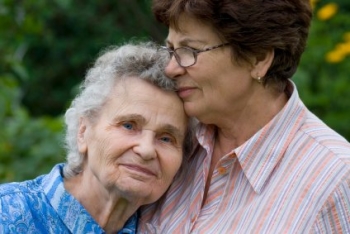
Can a family member be a paid caregiver in Texas?
In Texas, there are several programs that will pay family members to provide non-medical, hands-on assistance for a loved one However, both the caregiver and care recipient must meet the eligibility criteria.
Website visitors can use the Paid Caregiver Program Search Tool. Doing so, helps caregivers and care recipients find programs for which they are eligible simply by responding to a series of questions.A caregiver-sometimes called an informal caregiver-is an unpaid individual (for example, a spouse, partner, family member, friend, or neighbor) involved in assisting others with activities of daily living and/or medical tasks. Formal caregivers are paid care providers providing care in one's home or in a care setting (day care, residential facility, long-term care facility). For the purposes of the present fact sheet, displayed statistics generally refer to caregivers of adults.
In the United States, there are more than 16 million people caring for someone with dementia-and many millions more around the world.
Did you know?
Alzheimer's disease affects 5.8 million Americans of all ages in 2019. Approximately 390,000 of them are Texans.
Alzheimer's disease is the sixth leading cause of death in the U.S. and has an economic burden of $290 billion annually.
Texas ranks fourth in the number of Alzheimer's disease cases and second in the number of Alzheimer's disease deaths.
Nearly 3.5 million of the estimated 5.8 million Americans with Alzheimer's disease are women and 2.1 million are men. Women are more likely to have other dementias.
In 2018, there were an estimated 16.2 million unpaid caregivers in the U.S., most of whom were family members.
In Texas, approximately 1.4 million unpaid caregivers provided care to Texans with Alzheimer's disease in 2018. This equates to 1.6 billion hours of unpaid care at a cost of approximately $20.6 billion per year.
Family caregiving for relatives or close friends with chronic,
disabling, or serious health problems so they can remain in their
home is nearly universal today. In 2013, nearly 3.4 million family
caregivers in Texas helped another adult loved one carry out daily
activities such as bathing or dressing, preparing meals,
administering medications, driving to doctor visits, and paying
bills.
"This new report demonstrates that we need to do more to assist the
3.4 million caregivers in our state," said AARP Texas Director Bob
Jackson. "Some of the things that will help family caregivers
include improved workplace flexibility, respite care, tax credits
and home care services."
Related Articles:
Home | About | Articles | Resources | Site Map | Privacy Policy
Elder Options of Texas
Copyright 2001-2024
All Rights Reserved
DISCLAIMER: Links to other websites or references to products, services or publications do not imply the endorsement or approval of such websites, products, services or publications by Elder Options of Texas. The determination of the need for senior care services and the choice of a facility is an extremely important decision. Please make your own independent investigation.